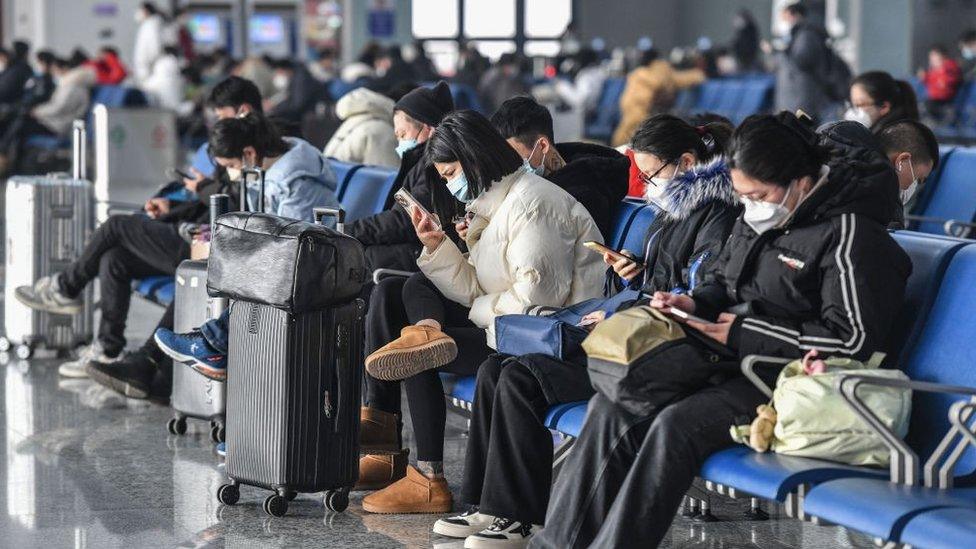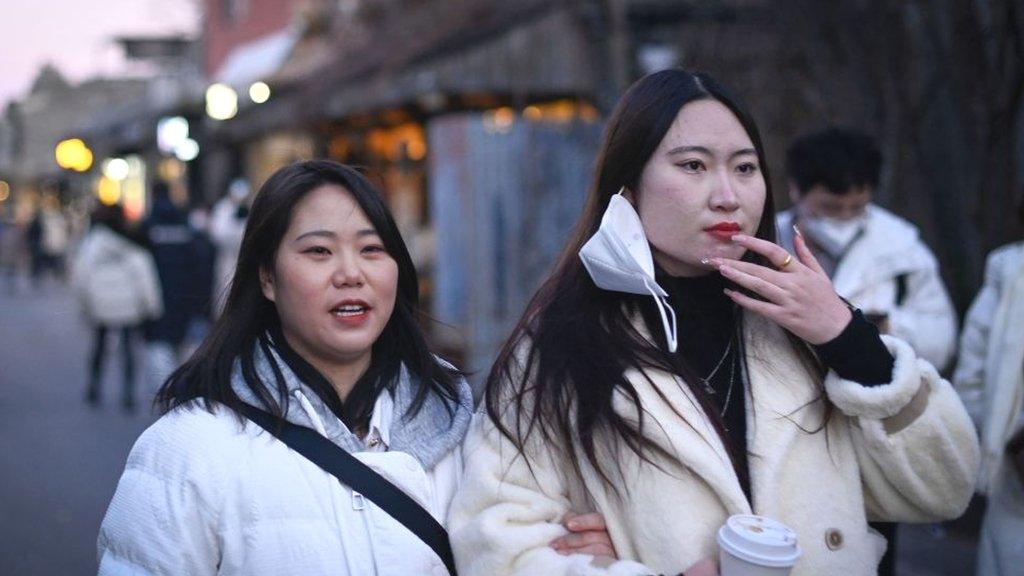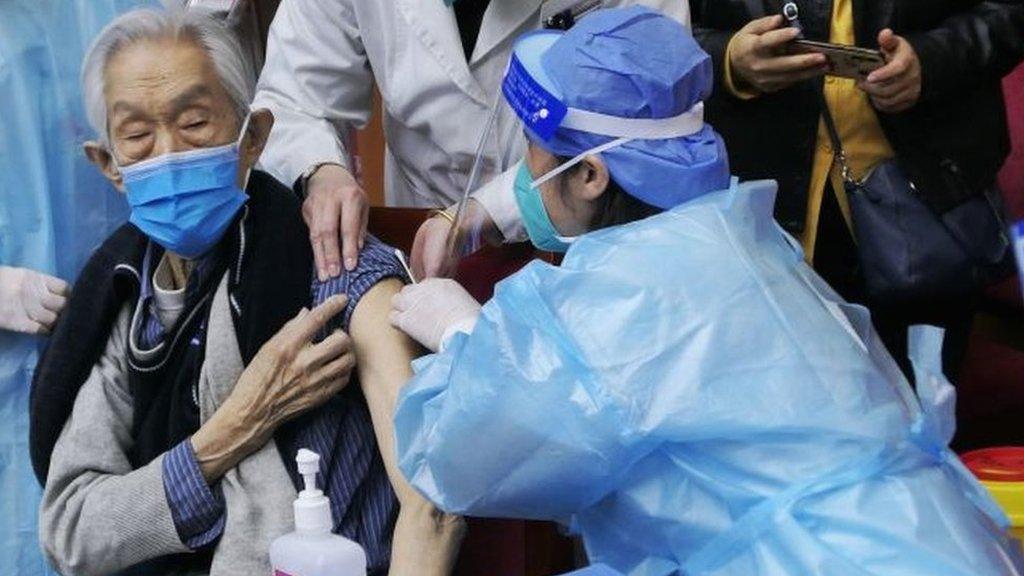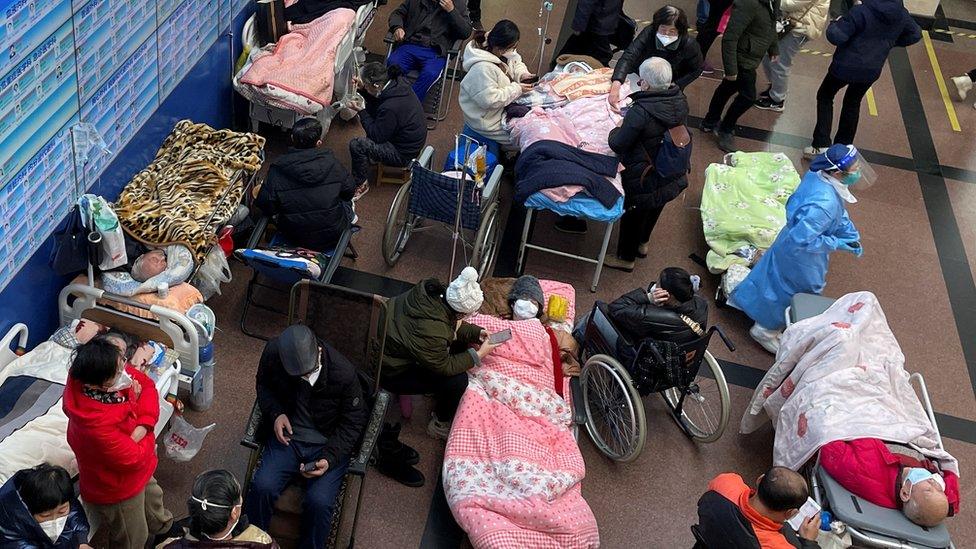China suspends social media accounts of Covid policy critics
- Published

The bans come as 2 billion in China are expected to travel for the Lunar New Year over the next 40 days
China has taken down more than 1,000 social media accounts - some with millions of followers - that criticised the government's Covid policies.
Social media platform Weibo said it had suspended or banned accounts for what it described as personal attacks against Chinese Covid specialists.
Weibo did not specify which posts had prompted the action.
China scrapped its strict zero-Covid policy in December and has seen a rapid surge of infections and deaths.
Online criticism has until recently largely focused on the strict enforcement of Covid regulations, including lockdowns that required people to stay at home in isolation for weeks.
But recent posts have taken aim at experts who have defended the sudden decision to drop restrictions, despite supporting them just weeks ago.
Weibo said it had spotted almost 13,000 violations, including attacks on experts, scholars and medical workers. Temporary or permanent bans have been handed to 1,120 accounts.
"It is not acceptable to hurl insults at people who hold a different point of view, or publish personal attacks and views that incite conflicts," Weibo said in a statement.
Any kind of move that is destructive to the [Weibo] community would be handled in a serious manner."
Since China abandoned key parts of zero-Covid following historic protests against the policy, there have been reports of hospitals and crematoriums being overwhelmed.
But China has stopped publishing daily cases data and has announced only 22 Covid deaths since December, using its own strict criteria.
On Saturday, China marked the first day of the 40-day period of Lunar New Year, known as the world's largest annual migration of people.
The Ministry of Transport said it expects more than two billion passengers to travel over the next 40 days, an increase of 99.5% year-on-year and reaching 70% of trip numbers in 2019.
This has led to widespread concerns that the festival may see another wave of infections, especially in rural areas that are less well-equipped with ICU beds and ventilators.
From Sunday, China will drop a requirement for travellers coming from abroad to quarantine, meaning many Chinese will be able to travel abroad for the first time in almost three years.
Related topics
- Published6 January 2023

- Published5 January 2023

- Published5 January 2023

- Published4 January 2023
